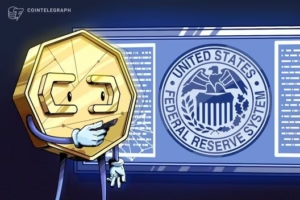The Open Network (TON), a blockchain platform born from Telegram, recently announced a staking program that purportedly offered a pathway to residency in the United Arab Emirates (UAE). However, this claim has been categorically denied by the UAE authorities, causing a stir in the cryptocurrency community.
According to TON, individuals could secure a 10-year Golden Visa by staking $100,000 worth of Toncoin (TON) for a period of three years and paying a one-time processing fee of $35,000. The announcement generated significant interest, promising that applicants could receive their Golden Visa in less than seven weeks from the time of document submission to the Visa Office.
However, the Emirates News Agency (WAM) swiftly countered this assertion, stating that the country’s Federal Authority for Identity, Citizenship, Customs and Port Security, along with the Securities and Commodities Authority and the Virtual Assets Regulatory Authority, had released a joint statement clarifying that Golden Visas are not extended to digital asset holders. The authorities emphasized that investments in digital currencies are subject to specific regulations and do not influence eligibility for Golden Visas. Furthermore, they urged potential investors to seek information solely from reliable and official sources to avoid misinformation and potential fraud.
Interestingly, while TON claimed that applicants would retain control of their assets during the staking period through a verifiable decentralized smart contract on theTON blockchain, the entire premise of the Golden Visa program is now under scrutiny. Industry experts have pointed out that the program lacks an official partnership with the UAE government. As stated by Joe HedgeHog, partner at Sigil Fund, “A third-party provider is using TON as a proxy to help their clients get Golden Visas for entrepreneurs. They could have used any other coin instead.”
This skepticism has not deterred investors completely, as the announcement led to a spike in Toncoin’s value, which surged over 10% shortly after the news broke. At the time of reporting, the token was trading at approximately $2.98, despite being down over 60% compared to its value a year ago. The considerably lower entry cost for the Golden Visa compared to conventional routes—which typically require investments of at least $540,000—has certainly caught the attention of potential investors, particularly those with significant capital.
With the UAE actively promoting itself as a hub for blockchain and cryptocurrency projects, the landscape is evolving rapidly. The recent approval of Ripple’s RLUSD stablecoin by the Dubai Financial Services Authority and updates to regulations allowing tokenization of real estate assets are just a few examples of how the region is restructuring its approach to digital finance. As Dubai continues to attract over 600 crypto companies and innovate in the space, it remains to be seen how such developments will shape its future as a leader in the industry.



